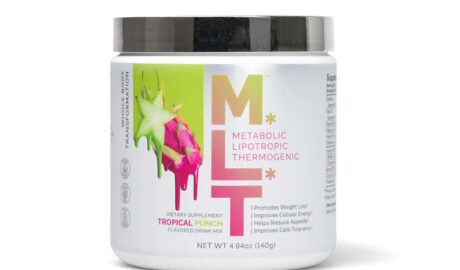Our hormones influence so much — from mood to energy levels and everything in between. As women, we know just how deeply they can impact the way we feel day to day. And while mood fluctuations are completely normal, understanding why they happen can help us navigate them with more ease and kindness.
Whether you’re moving through the phases of your cycle or transitioning into menopause, your hormones are always shifting. But here’s the good news: by nourishing your body with the right foods and making simple lifestyle shifts, you can support a more balanced mood and sustained energy — at every stage. Let’s dive into the science behind this important connection and the tools that can truly make a difference.
Please note: If mood changes are extreme, severely impacting your quality of life or if you’re navigating a low mood for an extended period of time, you’re not alone. Please seek guidance from a health practitioner who can guide you and tailor personalised treatment to you.
The Science Behind Hormones and Mood
Hormones act as our chemical messengers, influencing many processes in the body including metabolism, digestion, mood and more. When our hormones are in harmony we can feel vibrant, energised, clear-headed and steady. But when they fluctuate or become imbalanced, feelings of stress and anxiety or low mood can begin to creep in.
Well known hormones you may know are:
- Cortisol: Known as the ‘stress’ hormone, cortisol is a natural and expected element of our daily processes. In excessive amounts, cortisol may lead to anxiety, irritability or chronic fatigue.
- Oestrogen & Progesterone: These reproductive hormones fluctuate throughout the menstrual cycle, affecting serotonin (our happy hormone) and GABA (a calming neurotransmitter). These are often tied to mood, based on each individual’s hormonal ‘normal’.
- Serotonin & Dopamine: Often referred to as ‘feel-good’ neurotransmitters, these brain chemicals play a key role in emotional stability, motivation and reward.
- Thyroid Hormones: The thyroid regulates metabolism and energy. Imbalances may contribute to mood changes, including feelings of sluggishness or anxiousness.
Supporting Mood with Nutrients
Nourishing your body with the right nutrients is one way you can work to support hormonal harmony.
Here some key players to add in:
- Magnesium: Renowned for its calming properties, magnesium can support nervous system health, GABA activity, muscle relaxation and better sleep.(1)
Food sources: Leafy greens, almonds, pumpkin seeds and dark chocolate. - B Vitamins: Essential for neurotransmitter production, B vitamins can help to boost energy, enhance mental clarity and reduce stress.(2)
Food sources: Whole grains, eggs, dairy and leafy greens. - Omega-3 Fatty Acids: Omega-3s can support brain health and reduce inflammation, therefore promoting overall mood balance.(3)
Food sources: Oily fish (salmon, mackerel, sardines), flaxseeds and walnuts. - Zinc: Vital for neurotransmitter function and immune health, zinc can play a role in mood regulation by supporting cognitive function (GABA) and may even reduce anxiety.(4)
Food sources: Shellfish, lean meats, chickpeas, and pumpkin seeds. - Iron: Crucial for oxygen transport and energy production, iron helps prevent fatigue and can support overall cognitive health. Those with iron deficiency often experience mood related symptoms.(5)
Food sources: Red meat, lentils, spinach and tofu. - Adaptogenic Herbs: These powerful herbs help the body adapt to stress.(6) You may look to try targeted supplements with these, guided by a health professional.
Other Ways to Support Your Mood
Beyond nutrition, lifestyle choices play a significant role in supporting your hormone health and overall emotional wellbeing.
Try my top tips:
- Prioritise restorative sleep: Aim for 7-9 hours of quality sleep per night to support your body and mind in rejuvenating. Having a nightly sleep routine has made a world of difference for my sleep. See my routine here.
- Move your body daily: Regular movement, whether it’s walking, yoga, dancing or resistance training, helps regulate cortisol and boost endorphins. Find a way of moving your body that you love and do it daily.
- Manage stress with mindfulness: Practices such as meditation, breathwork and journaling can help regulate stress hormones and improve emotional resilience. Find a quiet place to connect to yourself each morning and night and enjoy the ritual.
- Stay connected: Strong social connections support oxytocin production, the ‘bonding hormone,’ which enhances feelings of happiness and security. Find a friend, family member or trusted professional whom you can be yourself with.
- Reduce endocrine disruptors: Where possible, voiding synthetic chemicals found in plastics, highly processed foods, cleaning products and conventional beauty products may help to maintain hormonal harmony.
References:
1. Azargoonjahromi, A. (2024) ‘A systematic review of the association between zinc and anxiety’, Nutrition Reviews, 82(5), pp. 612–621. DOI:10.1093/nutrit/nuad076.
2. Kirkland, A.E., Sarlo, G.L. and Holton, K.F. (2018) ‘The role of magnesium in neurological disorders’, Nutrients, 10(6), p. 730. DOI: 10.3390/nu10060730.
3. Kennedy, D.O. (2016) ‘B vitamins and the brain: mechanisms, dose and efficacy—A review’, Nutrients, 8(2), p. 68. DOI:10.3390/nu8020068.
4. Kiecolt-Glaser, J.K., Belury, M.A., Andridge, R., Malarkey, W.B. and Glaser, R. (2011) ‘Omega-3 supplementation lowers inflammation and anxiety in medical students: a randomized controlled trial’, Brain, Behavior, and Immunity, 25(8), pp. 1725–1734. DOI: 10.1016/j.bbi.2011.07.229.
5. Cope, E.C. and Levenson, C.W. (2010) ‘Role of zinc in the development and treatment of mood disorders’, Current Opinion in Clinical Nutrition and Metabolic Care, 13(6), pp. 685–689. DOI: 10.1097/MCO.0b013e32833df61a.
6. Houston, B.L. et al. (2018) ‘Efficacy of iron supplementation on fatigue and physical capacity in non-anaemic iron-deficient adults: a systematic review of randomised controlled trials’, BMJ Open, 8(4), p. e019240. DOI:10.1136/bmjopen-2017-019240.






